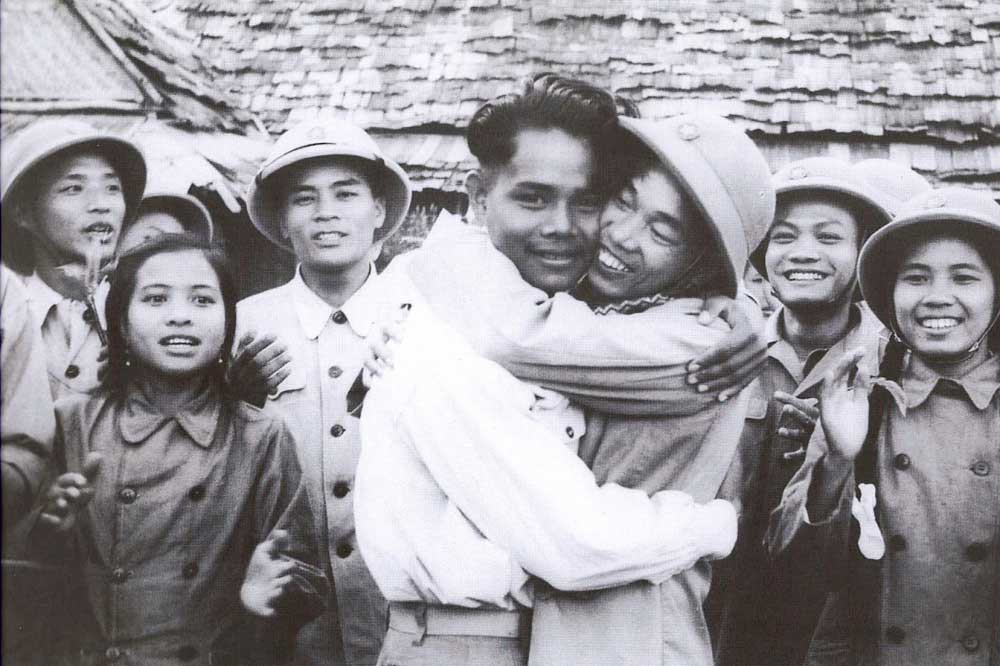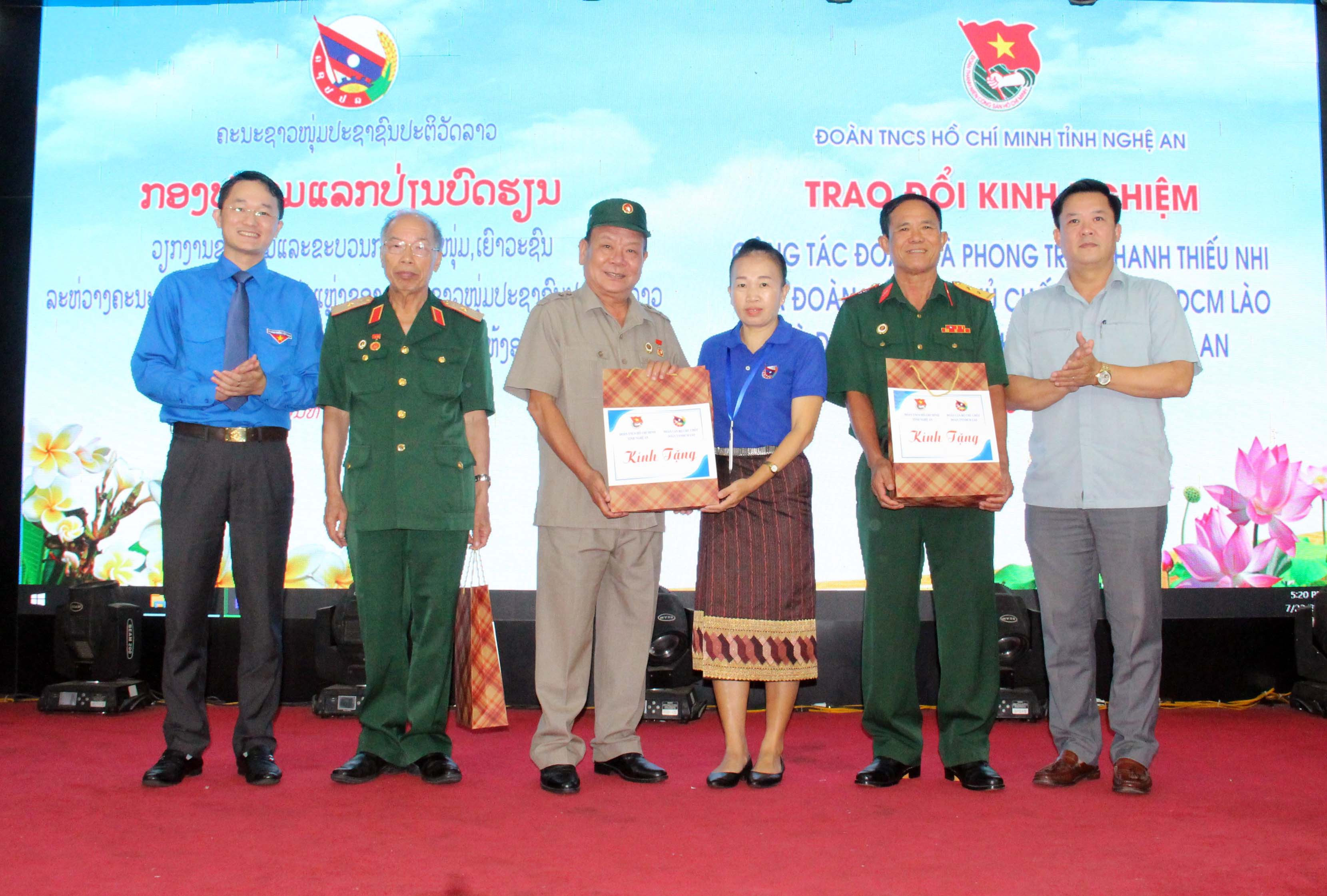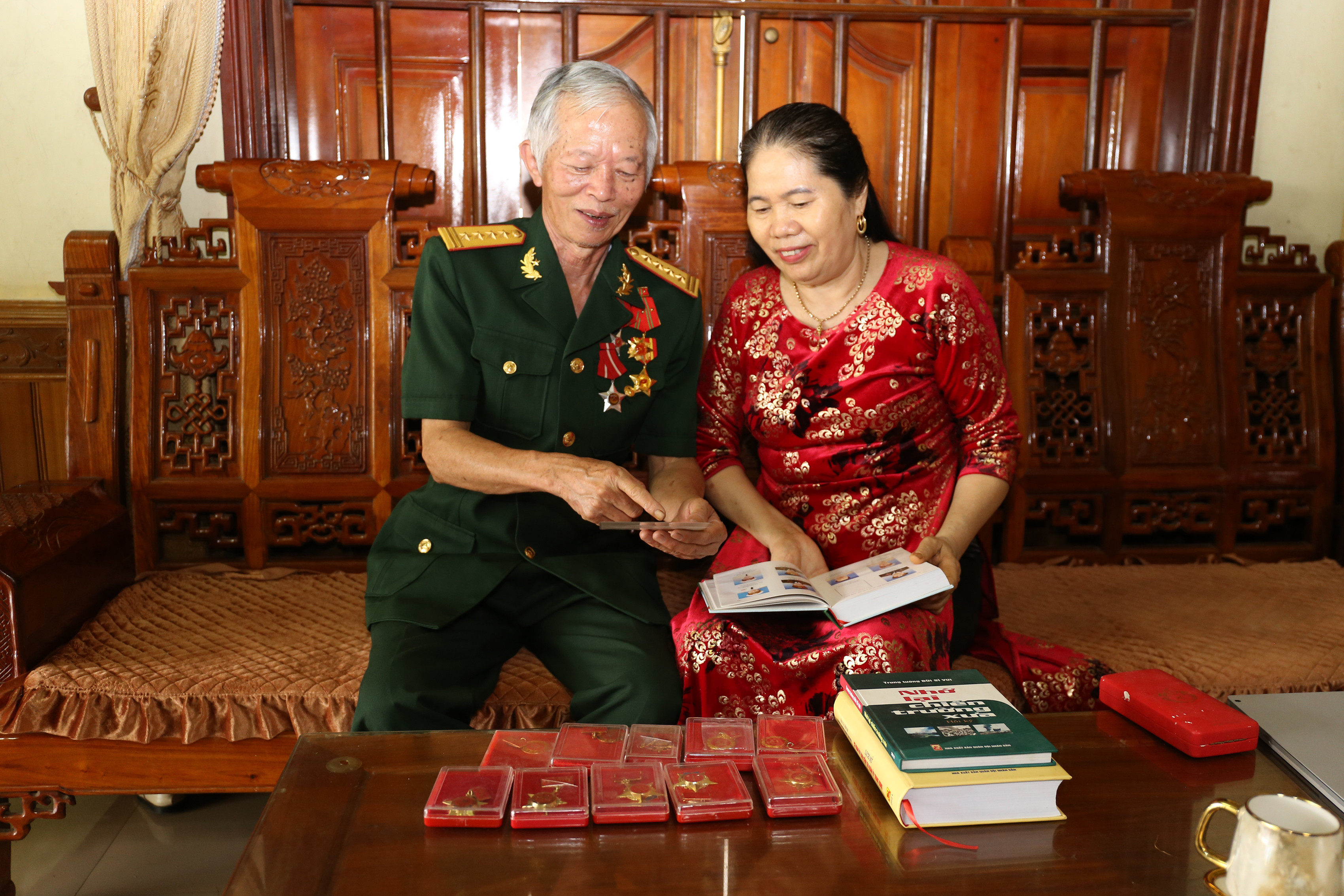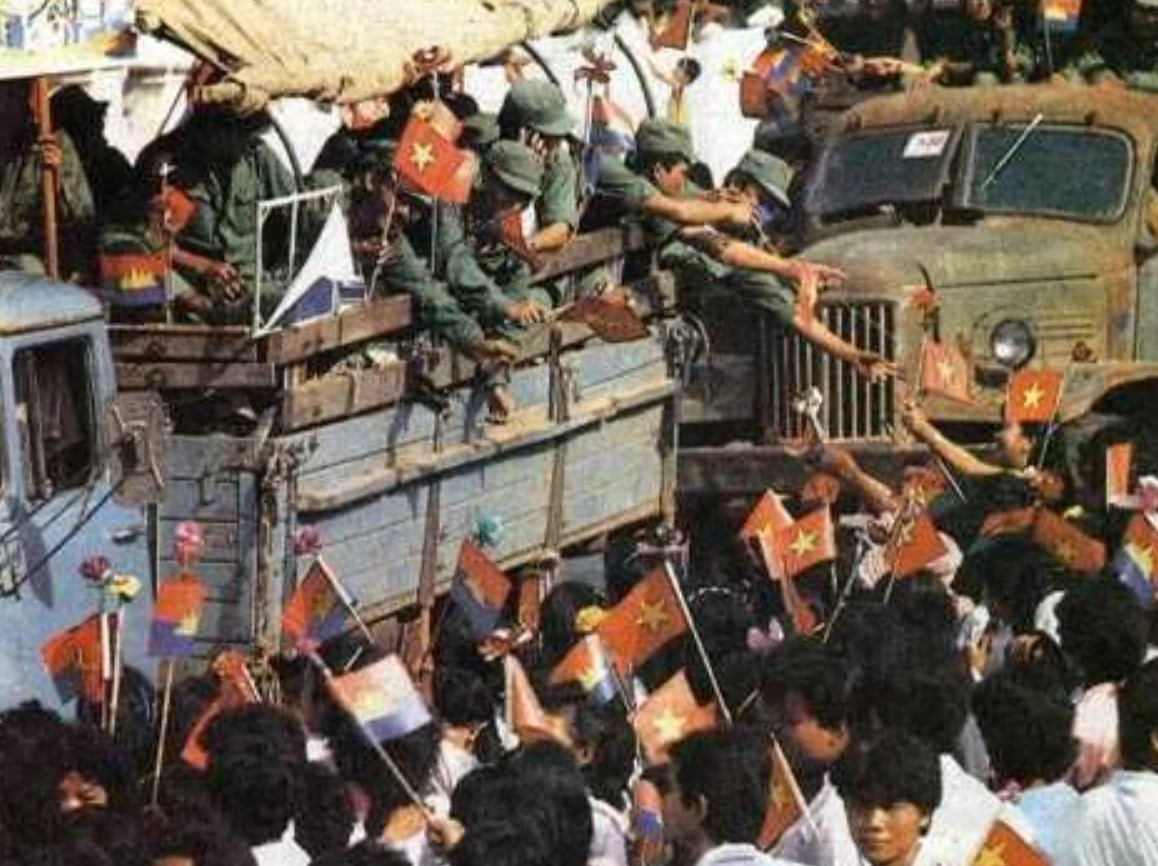Heroic stories of a time to remember…
(Baonghean.vn) - The war has ended, but the memories of the heroic years of the war are still intact in the minds of the soldiers. Remembering the camaraderie is the motivation for them to continue writing the heroic epic on the journey of building and protecting the Fatherland in the current period.
REMEMBERING THE TEAMMATES WHO "RATER SACRIFICE THAN LEAVING THE BATTLEFIELD"
Peacefully located on a small alley of Le Viet Thuat Street (Vinh City), the simple house of Mr. Dang Hung Ke (born in 1952) - Chairman of the Association of Vietnamese Volunteer Soldiers and Military Experts to Help the Lao Revolution is the place where many veterans in Nghe An come and go.
As April 30 approached, they sat together and recalled old memories. In those stories, many veterans were still moved when remembering a special comrade who, despite being seriously injured, refused treatment to stay on the battlefield until the last moment.
According to Mr. Dang Hung Ke, that special teammate was Nguyen Van Phu (born in 1950), from Yen Thanh district, belonging to the S4 Special Forces Unit, later merged into Regiment 39, Division 968, Military Region 4.

In the dry season of 1972-1973, the war situation in the Salavan region (Southern Laos) was complicated, fierce and fierce. At the end of October 1972, the enemy used helicopters to land and capture Salavan, both to relieve the town of Sedon which was under our siege and to narrow our liberated area. In early 1973, the war became more fierce, we and the enemy fought for every road, every hill, every inch of land to create an advantage before the Vientiane Agreement on Laos was signed.
In that situation, according to the organization's assignment, the 968th Division received orders to march to Salavan town. This town is located on the banks of the Sedone River, has an airport and is only about 10km from the strategic Western Truong Son road. After a fierce battle between us and the enemy in 1973, after controlling the battlefield, the S4 Special Forces unit proceeded to clean up the battlefield and check the number of troops and discovered that a comrade named Nguyen Van Phu, from Yen Thanh, was missing.

Because comrade Phu was one of the bravest and most intelligent soldiers, the pioneer of many comrades in the previous battles, everyone was worried when he was nowhere to be found. The unit also spread out to search but no trace of comrade Phu was found. Because of the urgent time, the unit was forced to withdraw to the rear, handing over the battlefield to the infantry units to guard.
At the rear base, the unit organized to increase production, continue training, and equip political and logistical knowledge. After nearly a month, the unit suddenly saw comrade Nguyen Van Phu appear.
At this time, the unit realized that the comrade was seriously injured and was taken to the infirmary by his comrades from the other unit. Seeing that his wound was getting worse, the infirmary decided to let comrade Phu return to Vietnam for further treatment. However, seeing that the war was still fierce, comrade Phu could not leave his comrades to return home.
Looking at the wound on his forehead that was still festering, the unit commander was extremely worried. Although he tried his best to persuade his comrade to return home to treat his wound, once again comrade Phu firmly asked to stay and fight with his comrades.
Knowing that they could not change the iron-willed man's decision, the unit agreed to let him stay.
"Unfortunately, in a battle afterward, comrade Nguyen Van Phu sacrificed his life. That sacrifice was an irreparable loss, but it was also the motivation for the unit to continue fighting, to continue protecting the values that his comrades had to fall for in the most beautiful youth of their lives."
APRIL 30 "SPECIAL" IN SOLDIER'S MEMORIES
For Mr. Nguyen Van Tuat (born in 1958) - Former Deputy Political Commissar of Division 330, Military Region 9, the days of sharing hardships in Cambodia have become unforgettable memories.
What remains in him and his teammates until today, besides the great sacrifice and loss, is also deep pride for having completed a noble international mission.

Going back in time to December 2, 1978, the Cambodian National United Front for National Salvation was established and asked Vietnam: “Please help us, not just save tens of thousands of refugees, but save an entire nation!”. Following the urgent call of its neighbor, the Vietnam People’s Army launched a strategic counter-attack and then switched to the offensive, coordinating with the Cambodian revolutionary armed forces to defeat the Khmer Rouge military forces and abolish the genocidal regime.
In 1984, Mr. Nguyen Van Tuat, then a soldier of Regiment 30, Division 4, Military Region 9, was assigned to the Cambodian border battlefield in Koh Kong province.
He and his comrades went through the 1984-1985 Dry Season campaign. From 1986 to 1989, realizing that the People's Republic of Kampuchea regime had stood firm, the Vietnamese Army gradually withdrew its troops from Cambodia.
However, in 1986, the Khmer Rouge remnants still launched a number of attacks on our troops. And during those arduous fighting days, Mr. Tuat and his comrades still could not forget the battle on April 30, 1986.
According to Mr. Tuat, on the morning of April 30, 1986, the Khmer Rouge army opened the attack on the 4th Division with a series of mortar rounds. The two sides fought relentlessly until nearly midnight when our army took control of the battlefield.
At this time, infantry reconnaissance counted that nearly 6,000 mortar shells had been fired at the base by the enemy. At the end of the battle, Mr. Tuat was slightly injured, while his comrade who had fought side by side with him from Ca Mau was hit by a bullet, causing severe injuries to his legs and arms. Although his comrade was promptly treated and his life was saved, a part of his body still had to remain on the old battlefield.

When peace was restored, in Mr. Tuat’s old unit, some people remained forever or left a part of their blood and bones in the motherland. Some people were discharged and returned to their hometowns to work and produce, some continued their duty to protect the Fatherland…
However, no matter what position or circumstance, he and his comrades always encourage and help each other in life to continue to uphold the qualities of "Uncle Ho's Soldiers" and the glorious tradition of the heroic Vietnam People's Army.
